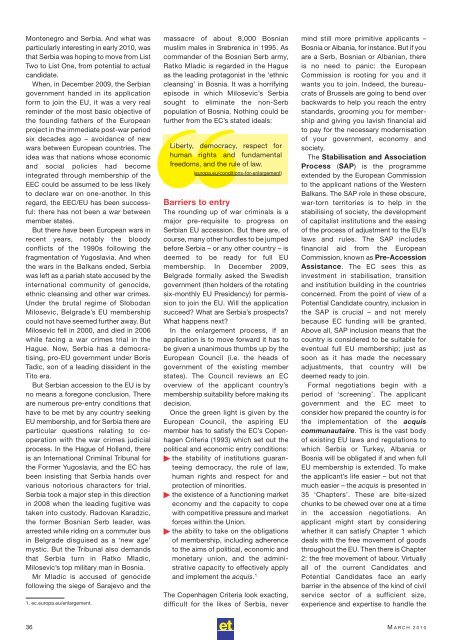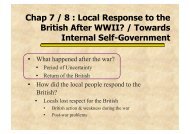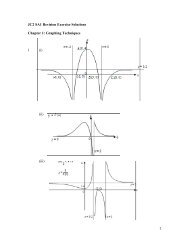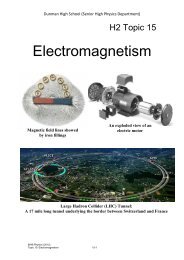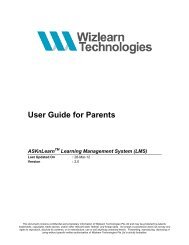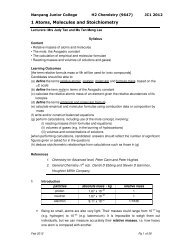Eco Today - Mar10:ET Master Page 2007 - ASKnLearn
Eco Today - Mar10:ET Master Page 2007 - ASKnLearn
Eco Today - Mar10:ET Master Page 2007 - ASKnLearn
Create successful ePaper yourself
Turn your PDF publications into a flip-book with our unique Google optimized e-Paper software.
Montenegro and Serbia. And what was<br />
particularly interesting in early 2010, was<br />
that Serbia was hoping to move from List<br />
Two to List One, from potential to actual<br />
candidate.<br />
When, in December 2009, the Serbian<br />
government handed in its application<br />
form to join the EU, it was a very real<br />
reminder of the most basic objective of<br />
the founding fathers of the European<br />
project in the immediate post-war period<br />
six decades ago – avoidance of new<br />
wars between European countries. The<br />
idea was that nations whose economic<br />
and social policies had become<br />
integrated through membership of the<br />
EEC could be assumed to be less likely<br />
to declare war on one-another. In this<br />
regard, the EEC/EU has been success -<br />
ful: there has not been a war between<br />
member states.<br />
But there have been European wars in<br />
recent years, notably the bloody<br />
conflicts of the 1990s following the<br />
fragmentation of Yugoslavia. And when<br />
the wars in the Balkans ended, Serbia<br />
was left as a pariah state accused by the<br />
international community of genocide,<br />
ethnic cleansing and other war crimes.<br />
Under the brutal regime of Slobodan<br />
Milosevic, Belgrade’s EU membership<br />
could not have seemed further away. But<br />
Milosevic fell in 2000, and died in 2006<br />
while facing a war crimes trial in the<br />
Hague. Now, Serbia has a democra -<br />
tising, pro-EU government under Boris<br />
Tadic, son of a leading dissident in the<br />
Tito era.<br />
But Serbian accession to the EU is by<br />
no means a foregone conclusion. There<br />
are numerous pre-entry conditions that<br />
have to be met by any country seeking<br />
EU membership, and for Serbia there are<br />
particular questions relating to cooperation<br />
with the war crimes judicial<br />
process. In the Hague of Holland, there<br />
is an International Criminal Tribunal for<br />
the Former Yugoslavia, and the EC has<br />
been insisting that Serbia hands over<br />
various notorious characters for trial.<br />
Serbia took a major step in this direction<br />
in 2008 when the leading fugitive was<br />
taken into custody. Radovan Karadzic,<br />
the former Bosnian Serb leader, was<br />
arrested while riding on a commuter bus<br />
in Belgrade disguised as a ‘new age’<br />
mystic. But the Tribunal also demands<br />
that Serbia turn in Ratko Mladic,<br />
Milosevic’s top military man in Bosnia.<br />
Mr Mladic is accused of genocide<br />
following the siege of Sarajevo and the<br />
1. ec.europa.eu/enlargement.<br />
massacre of about 8,000 Bosnian<br />
muslim males in Srebrenica in 1995. As<br />
commander of the Bosnian Serb army,<br />
Ratko Mladic is regarded in the Hague<br />
as the leading protagonist in the ‘ethnic<br />
cleansing’ in Bosnia. It was a horrifying<br />
episode in which Milosevic’s Serbia<br />
sought to eliminate the non-Serb<br />
population of Bosnia. Nothing could be<br />
further from the EC’s stated ideals:<br />
❝Liberty, democracy, respect for<br />
human rights and fundamental<br />
freedoms, and the rule of law.<br />
(europa.eu/conditions-for-enlargement)<br />
Barriers to entry<br />
The rounding up of war criminals is a<br />
major pre-requisite to progress on<br />
Serbian EU accession. But there are, of<br />
course, many other hurdles to be jumped<br />
before Serbia – or any other country – is<br />
deemed to be ready for full EU<br />
membership. In December 2009,<br />
Belgrade formally asked the Swedish<br />
government (then holders of the rotating<br />
six-monthly EU Presidency) for permis -<br />
sion to join the EU. Will the application<br />
succeed? What are Serbia’s prospects?<br />
What happens next?<br />
In the enlargement process, if an<br />
application is to move forward it has to<br />
be given a unanimous thumbs up by the<br />
European Council (i.e. the heads of<br />
government of the existing member<br />
states). The Council reviews an EC<br />
overview of the applicant country’s<br />
membership suitability before making its<br />
decision.<br />
Once the green light is given by the<br />
European Council, the aspiring EU<br />
member has to satisfy the EC’s Copen -<br />
hagen Criteria (1993) which set out the<br />
political and economic entry conditions:<br />
the stability of institutions guaran -<br />
teeing democracy, the rule of law,<br />
human rights and respect for and<br />
protection of minorities.<br />
the existence of a functioning market<br />
economy and the capacity to cope<br />
with competitive pressure and market<br />
forces within the Union.<br />
the ability to take on the obligations<br />
of membership, including adherence<br />
to the aims of political, economic and<br />
monetary union, and the admini -<br />
strative capacity to effectively apply<br />
and implement the acquis. 1<br />
The Copenhagen Criteria look exacting,<br />
difficult for the likes of Serbia, never<br />
mind still more primitive applicants –<br />
Bosnia or Albania, for instance. But if you<br />
are a Serb, Bosnian or Albanian, there<br />
is no need to panic: the European<br />
Commission is rooting for you and it<br />
wants you to join. Indeed, the bureau -<br />
crats of Brussels are going to bend over<br />
backwards to help you reach the entry<br />
standards, grooming you for member -<br />
ship and giving you lavish financial aid<br />
to pay for the necessary modernisation<br />
of your government, economy and<br />
society.<br />
The Stabilisation and Association<br />
Process (SAP) is the programme<br />
extended by the European Commission<br />
to the applicant nations of the Western<br />
Balkans. The SAP role in these obscure,<br />
war-torn territories is to help in the<br />
stabilising of society, the development<br />
of capitalist institutions and the easing<br />
of the process of adjustment to the EU’s<br />
laws and rules. The SAP includes<br />
financial aid from the European<br />
Commission, known as Pre-Accession<br />
Assistance. The EC sees this as<br />
investment in stabilisation, transition<br />
and institution building in the countries<br />
concerned. From the point of view of a<br />
Potential Candidate country, inclusion in<br />
the SAP is crucial – and not merely<br />
because EC funding will be granted.<br />
Above all, SAP inclusion means that the<br />
country is considered to be suitable for<br />
eventual full EU membership; just as<br />
soon as it has made the necessary<br />
adjustments, that country will be<br />
deemed ready to join.<br />
Formal negotiations begin with a<br />
period of ‘screening’. The applicant<br />
government and the EC meet to<br />
consider how prepared the country is for<br />
the implementation of the acquis<br />
communautaire. This is the vast body<br />
of existing EU laws and regulations to<br />
which Serbia or Turkey, Albania or<br />
Bosnia will be obligated if and when full<br />
EU membership is extended. To make<br />
the applicant’s life easier – but not that<br />
much easier – the acquis is presented in<br />
35 ‘Chapters’. These are bite-sized<br />
chunks to be chewed over one at a time<br />
in the accession negotiations. An<br />
applicant might start by considering<br />
whether it can satisfy Chapter 1 which<br />
deals with the free movement of goods<br />
throughout the EU. Then there is Chapter<br />
2: the free movement of labour. Virtually<br />
all of the current Candidates and<br />
Potential Candidates face an early<br />
barrier in the absence of the kind of civil<br />
service sector of a sufficient size,<br />
experience and expertise to handle the<br />
36 M ARCH 2010


